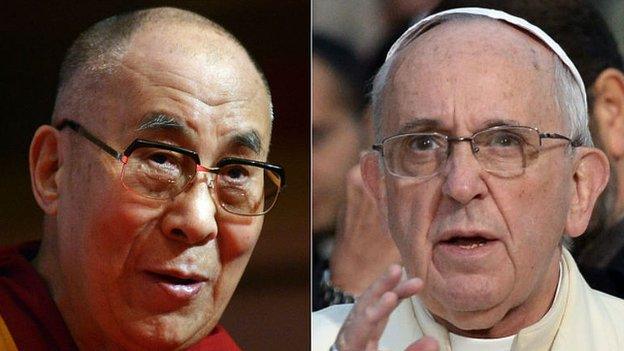Dalai Lama presses Aung San Suu Kyi over Rohingya migrants
- Published
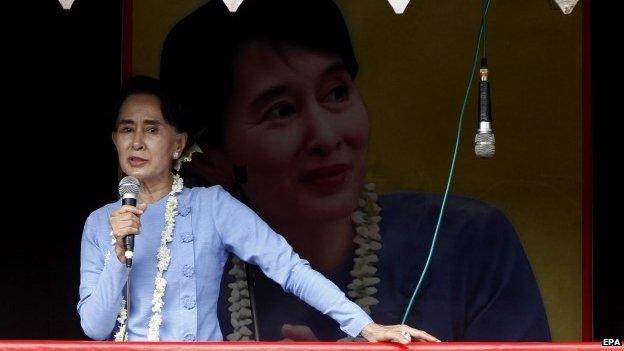
Aung San Suu Kyi has faced international criticism for her reticence in relation to the Rohingya question
The Dalai Lama has called on his fellow Nobel Peace Laureate, Aung San Suu Kyi, to do more to help persecuted Rohingya Muslims in her country, Myanmar.
The Tibetan spiritual leader told The Australian that he hoped Ms Suu Kyi could do something about the issue.
The Dalai Lama said that he was especially alarmed by the plight of thousands of Rohingyas stranded at sea.
Ms Suu Kyi has faced international criticism for refusing to speak out about the Rohingya issue.
The Rohingya are not recognised as citizens of Myanmar (Burma) by the authorities there and are effectively stateless.
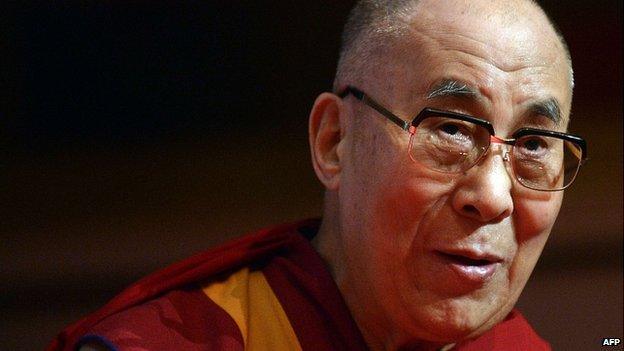
The Dalai Lama said that it was the responsibility of Myanmar's Buddhists to 'remember the face of the Buddha' when dealing with the Rohingya minority

The Tibetan spiritual leader said he was especially concerned about the plight of Rohingyas stranded at sea
In his interview with The Australian, external, the Dalai Lama appealed to all of Myanmar's Buddhists to "remember the face of the Buddha" when dealing with the Rohingya minority.
He said that he had urged Ms Suu Kyi to act over the issue twice since 2012, when an outbreak of interfaith violence erupted in Myanmar's Rakhine state.
"It's very sad. In the Burmese case I hope Aung San Suu Kyi, as a Nobel laureate, can do something," he told the newspaper.
"I met her two times, first in London and then the Czech Republic. I mentioned about this problem and she told me she found some difficulties, that things were not simple but very complicated.
"But in spite of that I feel she can do something."
Ms Suu Kyi, 69, has defended her reticence over alleged Rohingya persecution by saying she is a politician and not a human rights defender.
She argues that the problem of thousands of Rohingya migrants who have fled Myanmar - and are now believed to be stranded at sea - was for the government to solve.
The BBC's Jonah Fisher in Myanmar says that the Dalai Lama is the latest international figure to call for Ms Suu Kyi to speak out.
South African Archbishop Desmond Tutu has also expressed concern over their plight.
Our correspondent says that Myanmar is due to hold a general election in November and many see her silence as political pragmatism - she knows that many Burmese are openly hostile to the Rohingya minority.
But it is far from clear whether she actually has much sympathy for the Rohingyas, our correspondent adds.
- Published28 May 2015
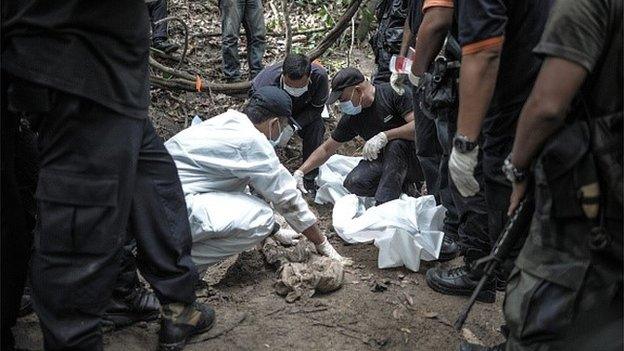
- Published18 May 2015
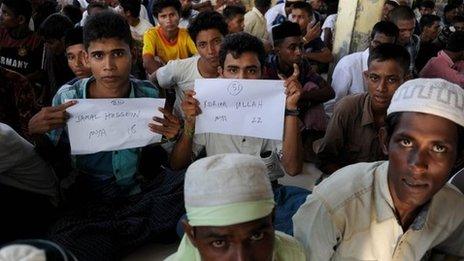
- Published24 May 2015
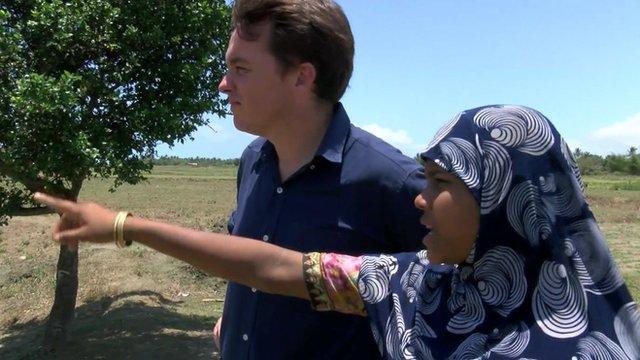
- Published24 May 2015
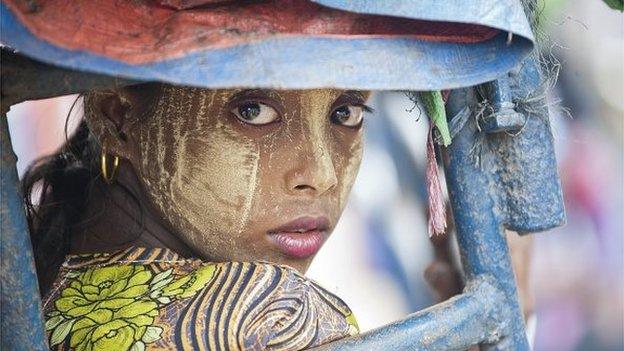
- Published20 May 2015
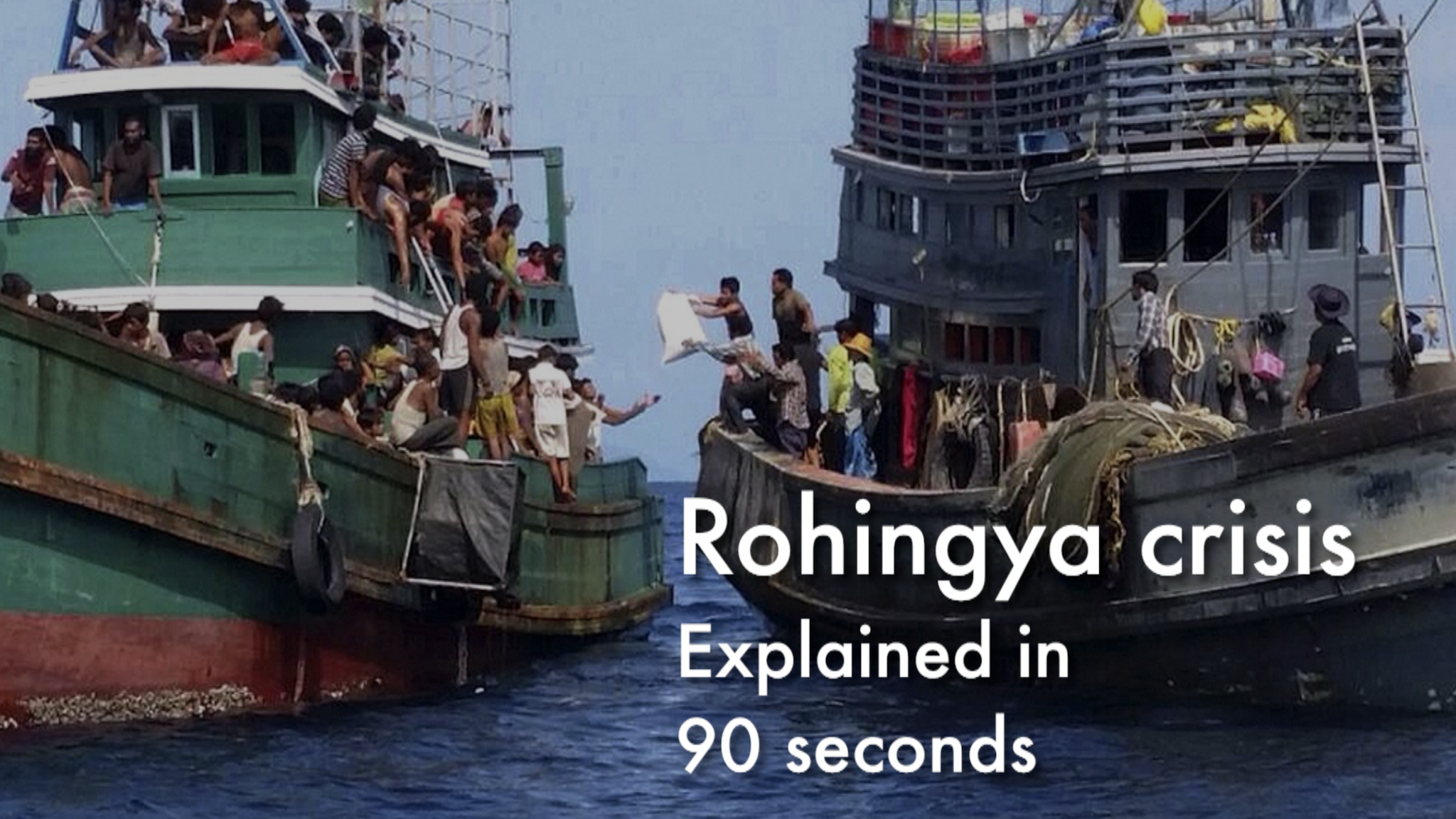
- Published12 December 2014
